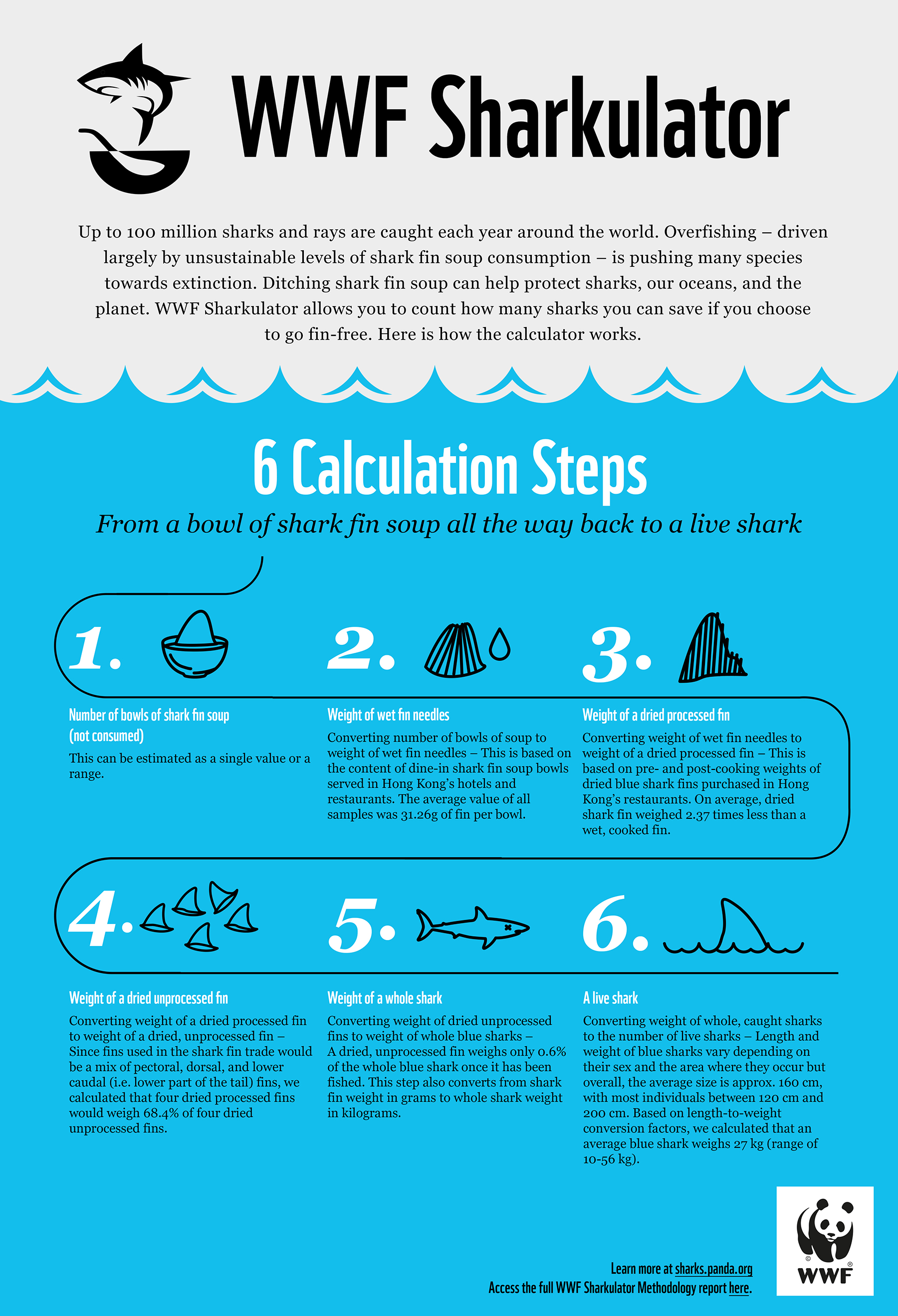The WWF is run at a local level by the following offices...
- WWF Global
- Adria
- Argentina
- Armenia
- AsiaPacific
- Australia
- Austria
- Azerbaijan
- Belgium
- Bhutan
- Bolivia
- Borneo
- Brazil
- Bulgaria
- Cambodia
- Cameroon
- Canada
- Caucasus
- Central African Republic
- Central America
- Central Asia
- Chile
- China
- Colombia
- Croatia
- Democratic Republic of the Congo
- Denmark
- Ecuador
- European Policy Office
- Finland
Our News
HK SHARK FIN IMPORTS DOWN 70% SINCE 2009, WWF ANNOUNCES
[HONG KONG – 14 July 2020] WWF-Hong Kong’s work to reduce the demand for shark fin in the city continues to show promising results, with a 40% drop in year-on-year imports in 2019 to 2,792 tonnes,
[HONG KONG – 14 July 2020] WWF-Hong Kong’s work to reduce the demand for shark fin in the city continues to show promising results, with a 40% drop in year-on-year imports in 2019 to 2,792 tonnes, representing a 70% drop over the past decade, according to figures from the Census and Statistics Department. Since 2011, an annual average of 33% of those fins were re-exported to other countries or regions such as Viet Nam, mainland China and Macau. A downward trend of shark fins retained in the city is observed over the same period, which may indicate that the shark fin consumption has been driven down.
In the first five months of 2020, a total of 538 tonnes of shark fin were imported into Hong Kong, a 60% drop compared to the same period last year. “Although imports have dropped significantly, and there are an increasing number of fin-free options on menus, when social restrictions ease, it’s important that everyone remains conscious of their dining choices and says no to shark fin,” said Dr Laurence McCook, Head of Oceans Conservation, WWF-Hong Kong.
As part of WWF’s work to reduce the unsustainable consumption of shark fin, it has announced the launch of WWF Sharkulator today, an accounting tool that estimates the number of sharks can be saved when consumers choose to go fin-free. Sharkulator is based on a new scientific methodology developed by WWF-Hong Kong, that accounts for the variability in shark species, sizes of individuals, types of fin, and the different fin cuts used.
“Our newly-developed methodology focuses on producing an estimate for blue shark, as it is one of the most commonly fished species and the predominant one in the shark fin trade. Our estimate is based on product data from Hong Kong, the biggest global hub for the shark fin trade and one of the largest consumers of shark fin per capita, where the dish has a long tradition. We hope that WWF Sharkulator will help convince more people in Hong Kong and elsewhere in Asia to go fin-free,” said Dr Andy Cornish, Leader of Sharks: Restoring the Balance, WWF’s global shark and ray programme.
To halt further decline of shark and ray populations, WWF is urging everybody to say no to shark fin and choose sustainable options using the WWF Seafood Guide. “Weddings have long been one of the most common occasions of consuming shark fin soup in Hong Kong. The WWF Sharkulator allows consumers to visualise the impact that their dining choices could have on these increasingly threatened marine creatures. In 2018, there were 49,331 weddings in the city. With an average of 17 tables per wedding that’s potentially 204 bowls of shark fin soup per event. For each wedding that goes fin-free, we can save 24 sharks!” said Gloria Lai, WWF-Hong Kong’s Senior Conservation Officer, Sustainability.
Check out the Sharkulator online: http://wwf.org.hk/sharkulator


© WWF-Hong Kong/Tracy Tsang
Shark Fin